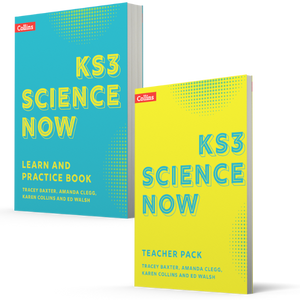
Ed Walsh explores how you can inspire students to pursue STEM careers and the value of integrating career discussions into your teaching.
-
Why is it important to start talking about careers in Key Stage 3?
Students may start to make decisions about KS4 subjects that will affect their future pathways, and their attitudes towards different subjects may well affect whether they see a future for themselves in it. Why try as hard in something that you think you will not study after the age of 16?
It’s not just case of flagging up career possibilities; research shows that many young people enjoy science and know that it’s important in modern life but don’t see a future in it for them. The ASPIRES project research or the Science Capital Teaching Approach are good resources.
-
Why should we encouraging students, particularly girls, to consider STEM careers?
Girls are less likely to choose STEM careers than boys (though this is less true now in some pathways) yet when they do, they often do well in them. Thinking about the challenges facing society over the next few decades, the list likely includes global pandemics, feeding an ever-growing population, climate change, the energy crisis and the effective provision of clean water. There isn’t one of these areas that STEM professionals won’t have a pivotal role helping to solve. Working with WISE, in KS3 Science Now, we’ve made a point of a strong representation of women in the examples of STEM professionals.
-
How can I integrate careers discussions into my lessons?
There are lots of ways and a good way forward seems to be short, varied and often. It doesn’t need to take over or dominate lessons but rather to add to the focus. These might include:
- KS3 Science Now examples and case studies
- WISE online resources
- STEM Ambassadors
- Video clips of STEM professionals at work
- Find out the careers and interests of your students’ parents/carers and integrate these examples
-
What else can schools do outside of lessons to encourage students to engage with careers in STEM?
A good idea is taking a range of approaches; it is unlikely one approach will suit all students.
- Several commercial STEM organisations websites are set up to engage and inform students about their professionals, training, and connections to the curriculum. Some also have activities and interactive resources.
- It may be possible to organise visits to commercial STEM locations to see professionals at work and talk to them about their choices and outcomes.
- Entering competitions and challenges that students can work towards and compete in, as part of extra-curricular activities.
- STEM Ambassadors might provide personnel who could support with activities
-
How have students responded to discussions about STEM careers?
If there haven’t been any such discussions it may be useful and informative to see what students think about STEM subjects and what opportunities they hold. However it is important to have looked at the ASPIRES and Science Capital resources first as these will help to identify why, in some cases, students may not have very positive attitudes.
If there have been discussions then it be worthwhile thinking about how you might respond – the materials you might draw upon, the examples to include and opportunities to offer. The Science Capital approach offers some practical ideas though one of the things you should be aware of is that it may not only be a case of trying to change what your students think but also what you offer to get those young people to see that science is for them.
Ed Walsh is an experienced freelance consultant specializing in science education and series editor of KS3 Science Now.
Read one of Ed’s other blog posts here: Ideas for re-engaging students with science this term

KS3 Science Now develops knowledge, builds confidence with purposeful practice, and shows students how science is used in the real world. Request your free evaluation pack: collins.co.uk/KS3ScienceNow
- Career profiles for every topic, created with WISE, showcase numerous examples of careers with relevant skills
- The lesson plans and resources are complemented by road maps, knowledge organisers and high-quality questions


